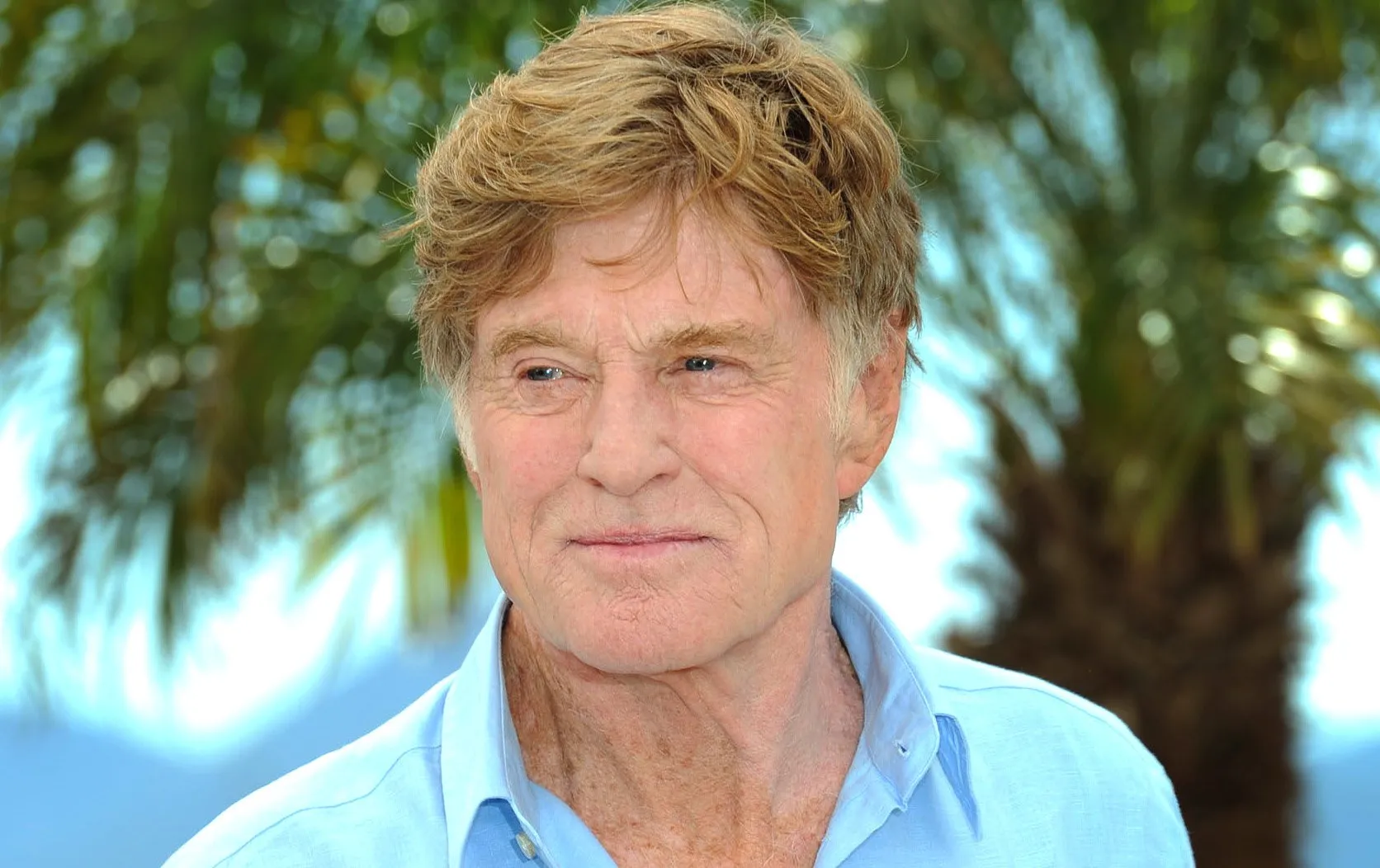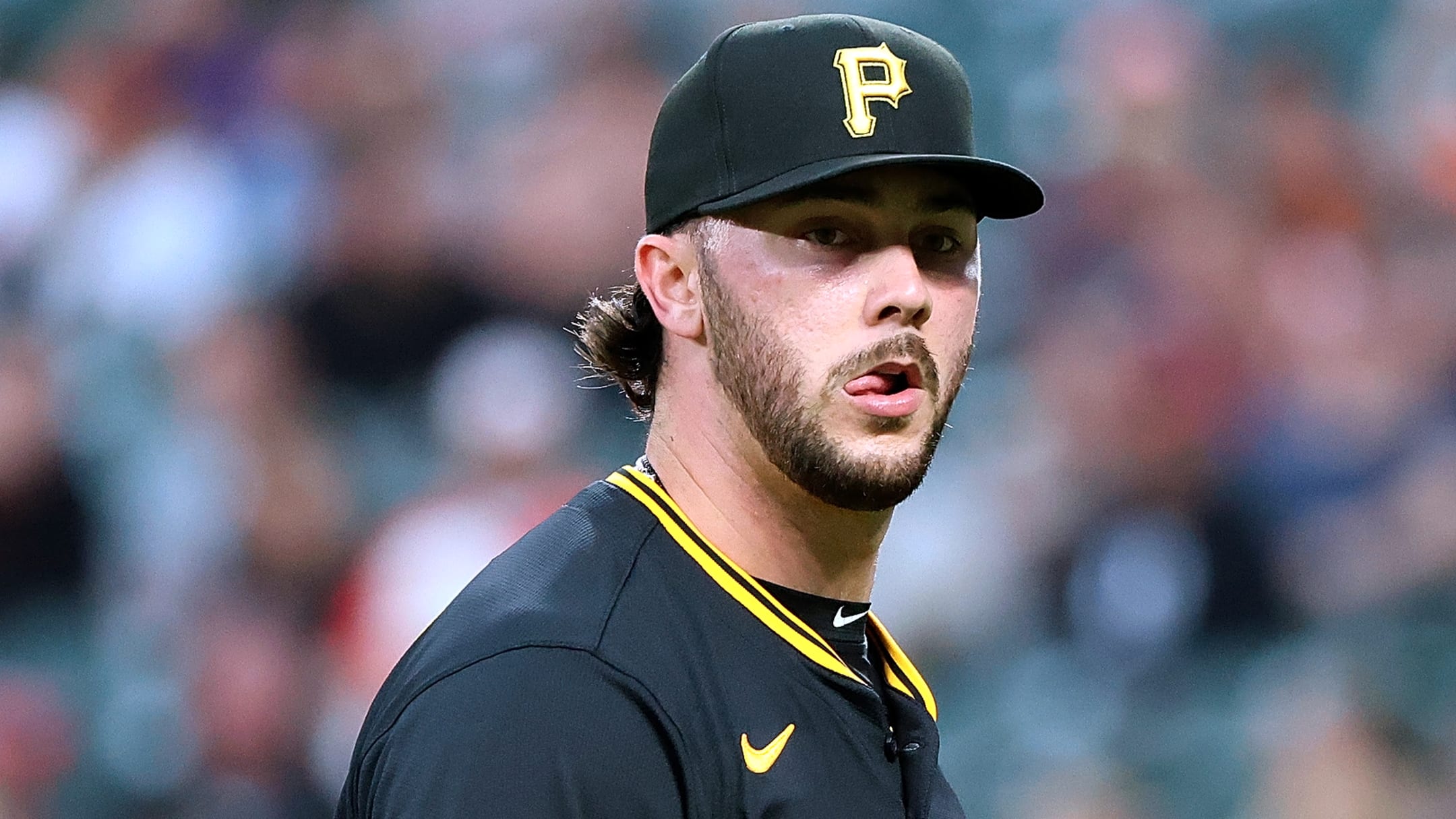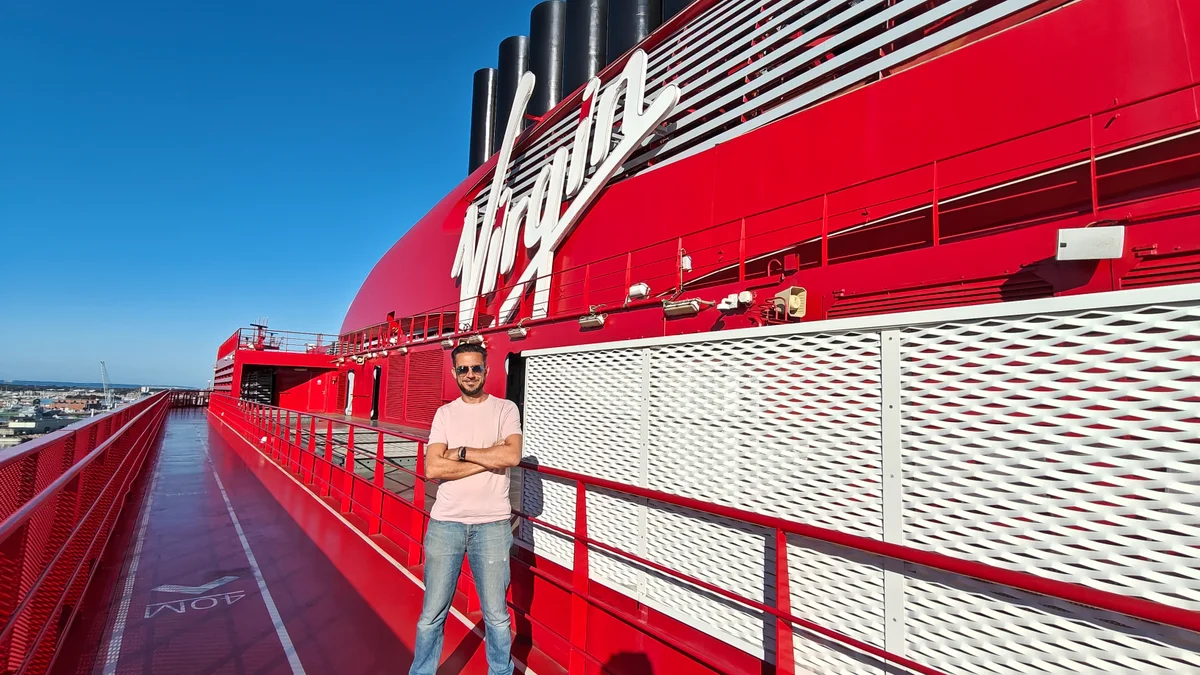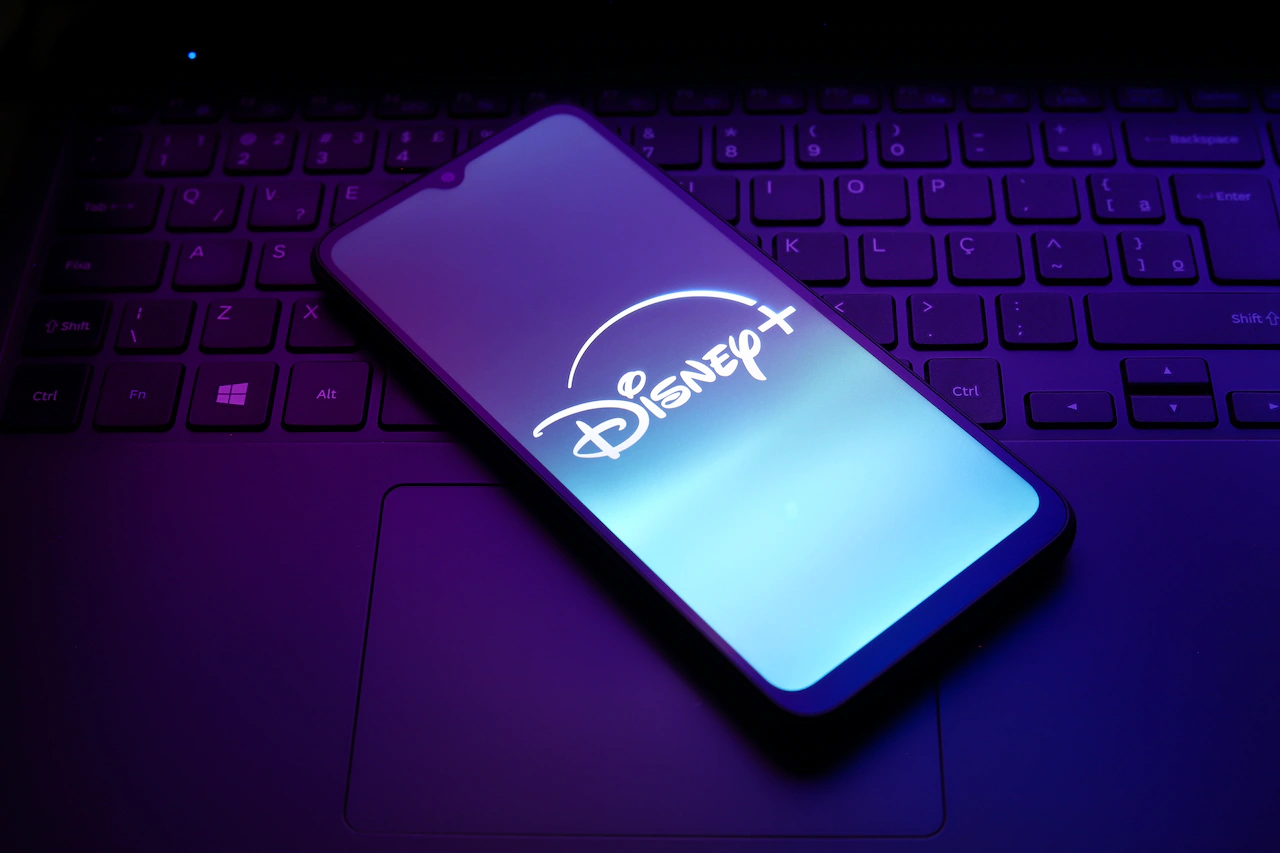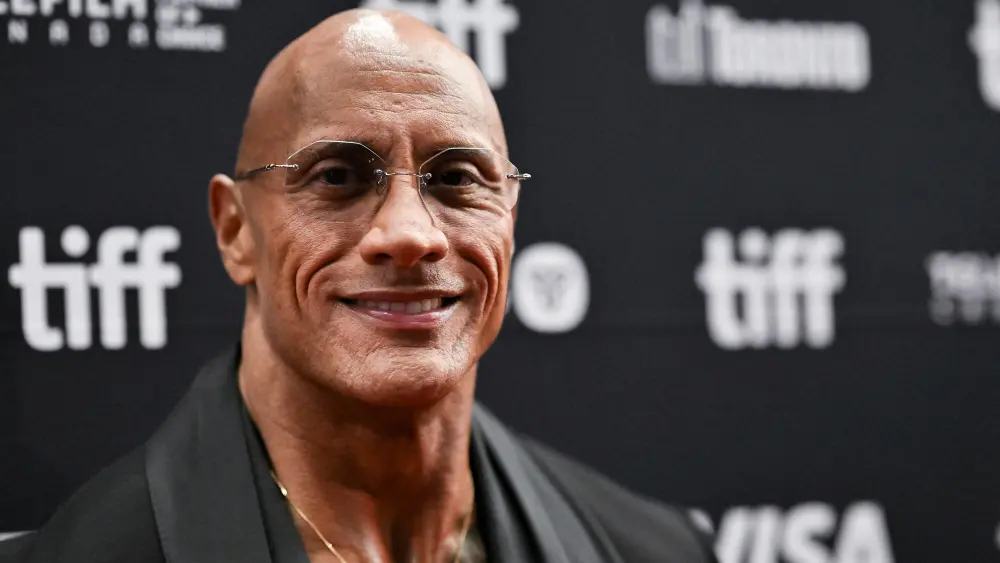
“I finally had a place to put all that stuff.”
Dwayne Johnson is still processing his film, “The Smashing Machine‘s” rapturous reception at the Venice Film Festival, where he was moved to tears. Now, he sits in a chair across from me, his trademark smile intact but his eyes carrying something fathomless. It’s the weight of a performance that has critics buzzing about Oscar potential, something he could have never imagined he would see or feel throughout his career.
For years, Dwayne “The Rock” Johnson has stood as a symbol of global box office power. A towering figure of charisma, commercial appeal and crowd-pleasing entertainment. But in Benny Safdie’s searing new drama, Johnson trades in his superhero swagger for emotional fragility, physical vulnerability and unflinching truth.
Portraying real-life MMA legend Mark Kerr, Johnson undergoes the most radical transformation of his career. Set in the late 1990s, the film chronicles Kerr’s rise through the brutal early days of mixed martial arts, his battles with addiction and the war within himself that nearly cost him everything.
Premiering to thunderous ovations at the Venice Film Festival, “The Smashing Machine” has stunned critics and redefined what’s possible for one of the world’s most recognizable stars. Johnson, once typecast as the indestructible action hero, now steps fully into the realm of awards-worthy dramatic acting, and does so with “radical empathy.”
“There’s the cliff, there’s the ocean of waves. It seems like you can’t swim them,” he reflects on taking the creative risk of dramatic acting.
The standing ovation represented validation. Not just for the performance, but for Johnson’s willingness to expose himself artistically in ways his action career never demanded nor requested. Still, the physical metamorphosis pales next to Johnson’s emotional excavation of Kerr, a UFC champion who battled addiction and personal demons behind his public victories. The film presents addiction and recovery with unflinching honesty, a stark departure from Johnson’s typically inspirational brand.
On this season premiere episode of Variety Awards Circuit Podcast, Johnson gets candid about his journey into the role, the emotional toll of going to dark places, the physical transformation that nearly broke him and his evolving sense of fatherhood and purpose. Listen below!
Read excerpts from the edited and condensed version below.
Your performance is incredible, and it feels like something like this has been inside you, just wanting to get out. What was it about Mark Kerr’s story that made you say, “Yes, I have to do this”?
Thank you so much for that. I really appreciate it. And you’re right. I feel like this has, for me, been brewing inside of me for some time — just this idea of: ‘Wait, I think I can do more. I feel like I want to do more.’ And then it comes… and then I’m going to do it with Benny Safdie. And then I start to get a little cold feet — ‘Wait, can I do more?’ You know?
But you’re right about needing that person to say, ‘Hey, not only can you, and I believe you can, but walk down this road with me and see what I see.’ And here’s the cliff. Jump off. Hopefully the parachute opens. But he was like, ‘I got you, though,’ right? That was the thing. ‘I got you.’ There’s the cliff, there’s the ocean of waves — it seems like you can’t swim them — but he said, ‘I got you.’
The movie isn’t really about the big fight — it’s about a man fighting himself. What was the core story to you?
Yes, that’s real life, I feel. That’s what Benny wanted to make. He wanted to make a movie about human vulnerability and real life. It’s easier and sexier to go after, ‘Hey, he’s fighting for the championship of the world. He wins it, he gets everything — money, fame.’ But this version? This is before UFC became the UFC. MMA was just starting.
You had a guy in Mark Kerr — this beast of a human being. A walking contradiction: the most lethal on the planet, but also the sweetest, tender, and kind. From Benny’s perspective, he felt like the good thing about our movie is, if we do it right, he works his ass off for everything — and he loses. Not only does he lose… sorry to spoil it a bit — but he loses everything. And ODs twice. He’s lucky to be alive.
That speaks to Benny’s DNA. He loses everything, but at the end, it’s okay. At the end, it wins.
Let’s talk about that transformation. You’ve always been in incredible shape, but how different was preparing to become Mark Kerr?
This transformation was the hardest thing I’ve ever done. There was a physical transformation, prosthetics, vocal transformation — he has a very specific way of talking.
When I first got together with Benny, we watched tapes of Mark, and Benny said, ‘I want to film this and never cut away from you.’ I knew what that meant. He said, ‘I don’t want to cut away. I want to shoot this cinéma vérité, with a prowling camera. You have a great stunt double, but I don’t want to use him.’
So I said, ‘Okay. If Mark gets punched, I’m getting punched.’
Then he says, ‘DJ, I don’t know if anyone’s told you this… but you need to gain weight.’ I went, ‘Okay.’ I felt that too. Give me 24 hours. I came back, and we looked at Mark again — and realized, his body is a unicorn. I had to put on 30 pounds. Benny said he wanted me to look a bit “puffy,” and I agreed.
But it’s not just gaining weight. It’s putting on a quality of muscle that has fast-twitch capacity. He’s a wrestler. It’s not about bodybuilding. I’ve never done so much trap and neck work in my life. Old-school wrestlers with no necks? That’s what I had to do. And I held that weight for three and a half months. Then, two weeks later, I had to roll into ‘Moana.’ So it was Mark Kerr and Maui. Big dudes.
Emily Blunt delivers an astonishing performance. What’s it like working with her?
Emily is my greatest inspiration. It’s one thing to be a great actor — which she is — but it’s her humanity that makes her so impactful. She makes it look easy. But the scenes we had? So hard. So raw. So intense.
The house we were in was built from scratch. Real water. Real lighting. Benny made it just so we could hide the cameras — so we never saw the camera during those scenes. We’d go into these emotionally violent places, and Benny made it feel like we were just there. Just living it.
Maseo Bishop, our DP and operator — he’s hidden, behind walls. You don’t even see him. There were no lighting setups. Just life. That’s why you feel like you’re sneaking into our house while watching it. Christopher Nolan saw it and said, ‘I feel like I shouldn’t be watching this.’ What a compliment.
You knew Mark Kerr back in the 90s, right?
I did. In the mid-90s. I started wrestling in ‘96 after my football career ended. In ‘97-‘98, whenever we wrestled in LA, we all went to the same gym. That’s where I met Mark, Coleman, Kevin Randleman, Don Frye. Legends.
At the time, I was Rocky Maivia, and it wasn’t going well. I was getting booed. These guys? Fighting for Pride in Japan and making real money. I remember saying to Mark, ‘Hey man, if I ever want to talk to you about this stuff, is that okay?’ He said, ‘Absolutely.’ I was a jabroni, and he was like, ‘Good for you, kid.’
But what I didn’t know then was what he was struggling with — addiction, depression, shame. You look at him and think he’s on top of the world. But that’s the lesson: you never know what someone’s going through.
There’s a line in the film: “I never lost.” And you can feel the weight behind that denial. What did that line mean to you personally?
It meant everything. Once I crossed this line into dramatic work, I knew I’d have to go to dark places — into trauma, pain, stuff I didn’t want to touch for years. I’m not big on therapy. I’ve talked to a few, had great convos, but I’m an only child. Like a lot of men, I hold it in. So unhealthy. But I knew, if I was going to do this, I had to open myself up.
This movie gave me a place to put all that stuff. I don’t know if it’s method — whatever it is — I went for it.
And thank God I had Mark. He OD’d twice. He’s still here. I could talk to him: ‘Hey man, what were you thinking?’ And he’d say, ‘I never lost.’ But the truth is, the win became the enemy. The pressure became toxic. The movie isn’t about winning or losing. It’s about pressure — and how we survive it.
What’s your message for people right now who feel like the world is on fire?
I’m happy to share something I’ve learned recently. My uncle said to me a couple of months ago: ‘It’s going to be okay. We’re going to be okay.’ That stuck with me.
And I’ll add something from Benny. He coined a term while we were filming: ‘radical empathy.’ If you can feel empathy for someone who looks invincible — like Mark Kerr — then you can feel it for anyone. And once you have that, the judging starts to go away. The noise dies down.
That’s what I’ve been telling my daughter Simone — we’re going through something. I said, ‘It’s going to be okay. Let’s talk. We’ve got this.’
Will The Rock ever run for president?
It’s wild, man. I’m always honored when people ask that. I love what I do. I love storytelling. But yeah… we’ll see.
Also on this episode, Chase Infiniti, the breakout star from “One Battle After Another” from writer and director Paul Thomas Anderson.
Variety’s “Awards Circuit” podcast, hosted by Clayton Davis, Jazz Tangcay, Emily Longeretta, Jenelle Riley and Michael Schneider, who also produces, is your one-stop source for lively conversations about the best in film and television. Each episode, “Awards Circuit” features interviews with top film and TV talent and creatives, discussions and debates about awards races and industry headlines, and much more. Subscribe via Apple Podcasts, Stitcher, Spotify or anywhere you download podcasts.
